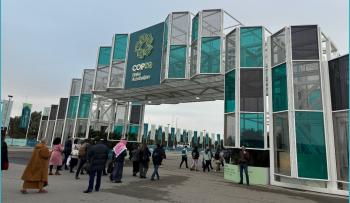
Will ‘travel time reliability’ be the new focal point of transport policy?
 In the European Union, congestion is estimated to costs nearly 100 billion Euro, or 1% of the EU's GDP, annually – Photo: Jean-François Gornet / Flickr
In the European Union, congestion is estimated to costs nearly 100 billion Euro, or 1% of the EU's GDP, annually – Photo: Jean-François Gornet / Flickr
‘Congestion’ and how to alleviate it often dominates the discussion in the transport arena. However, this may not be the case any longer: International Transport Forum (ITF) holds a strong plea to make ’travel time reliability’ an equally important transport topic. The reason: its costs may rival that of congestion.
We all know it from our own experience: We queue in the supermarket to pay for our purchases. While we accept a certain amount of waiting (in fact nothing else than congestion), what potentially drives us nuts is that the other lines seem always to advance faster. There are easy ways of managing people’s impatience: in a supermarket, let everyone draw a number so that no one feels disadvantaged. In traffic, some cities have introduced pedestrian traffic lights that count down the seconds one still has to wait. The main idea here is to reduce red crossings and it works. The nice side-effect is that users are more relaxed which improves road safety and human well-being.
Congestion, 1% of the EU's GDP
Speaking about EU transport policy, reducing congestion in and around European cities is clearly one of the priorities of the European Commission. It has a prominent place in the 2011 Transport White Paper. The Commission here estimated that congestion costs the European economy nearly 100 billion Euro, or 1% of the EU's GDP, annually.
‘Travel time unreliability’ emerges as an economic problem in the field of transport as well. Research done by the ITF indicates that the cost of unreliable travel time may rival that of congestion. “Shifting the focus from reducing travel time to reducing its variability implies a move from policies to build new infrastructure to better management of existing infrastructure, and to information provision for the users to enable better planning of the journey”, the ITF says in a press release. The research will be presented by the ITF during the forthcoming Intelligent Transport Systems World Congress in Detroit.
Cycling, a single answer to different problems
At the European Cyclists’ Federation we know that cycling can address both challenges: Due to its much more efficient use of road space compared to car use, cycling has the potential to ease congestion if individual motorized transport users shift to cycling, in particular in urban centres. In addition, cyclists are less prone to be stuck in traffic and therefore do not need to care too much about “travel time reliability”. Cyclists often can tell to the minute when they will arrive at their point of destination.
Cycling will not take your negative shopping experience away, but it you want to arrive on time at your work place or for an important meeting, grab a bike!

About the author
Thomas Mourey is a Policy Assistant at ECF.
His aim is to get 'more people cycling, more often' to avoid congestion and travel time unreliability.
- Log in to post comments
Contact the author
Recent news!
Upcoming events
Contact Us
Avenue des Arts, 7-8
Postal address: Rue de la Charité, 22
1210 Brussels, Belgium









